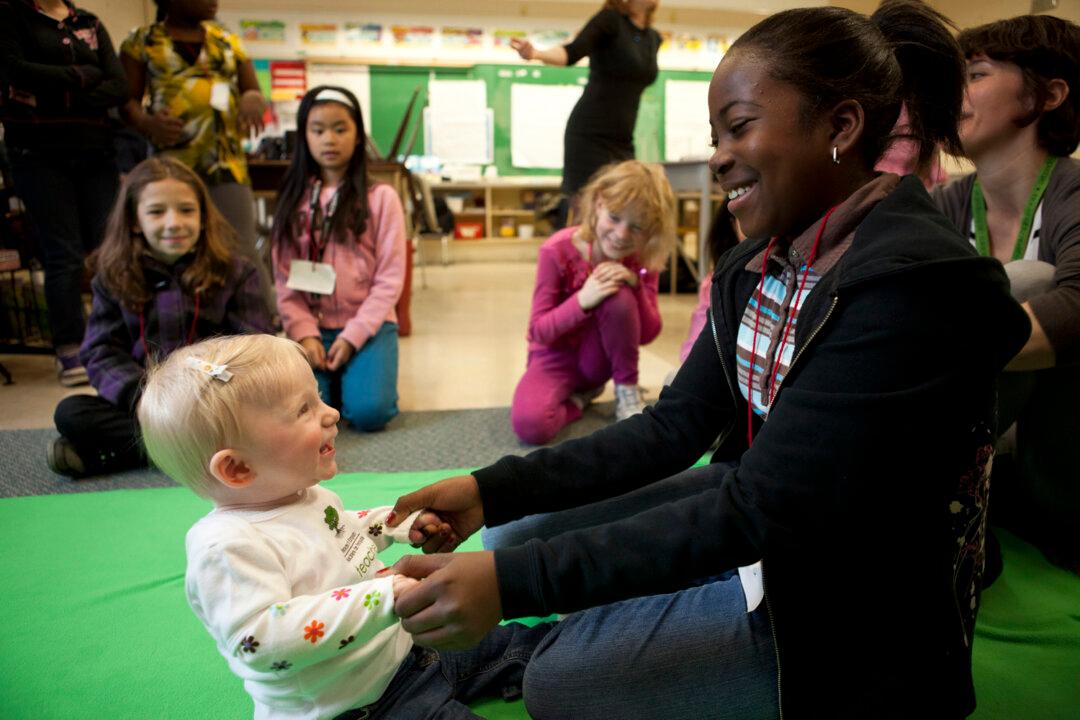Understanding the power of empathy, in 1996 Canadian educator Mary Gordon developed a now-famous program to combat aggression in children and provide them with a true model of good parenting.
Called Roots of Empathy, the program seeks to curb violence in society and the rise of bullying and anti-social behaviour in schools by teaching empathy to children from kindergarten to grade eight.
It works like this. Throughout the school year a local parent will bring a two- to four-month-old baby to the classroom every three weeks. A trained instructor runs the program, but the baby is truly the teacher as it visibly grows and develops over the year and engages the children.
During each visit, the class observes the baby as he or she crawls around, plays with toys, or interacts with its parent and the children. The children soon become absorbed in observing the child, who may be smiling, crying, or just sitting and looking around—that is, acting like a baby.
The children can ask questions and discuss the baby’s development, how the baby communicates his/her needs, and how they should respond appropriately.
After the parent and baby leave, the instructor asks the children a series of questions that focus on assessing the baby’s communications and feelings. In this way, students learn about the need for a nurturing relationship and vigilant parenting to enable the tiny person to thrive. Each visit focuses on themes related to the baby’s development.
The structured lessons also ask questions that focus on the children’s own feelings and behaviour. They write their answers down and also draw pictures to help focus on different aspects of themselves. The discussions are inclusive so that eventually a certain trust develops and a culture of respect and caring for others emerges.





